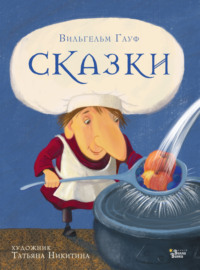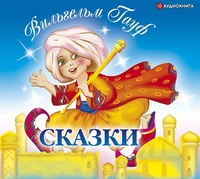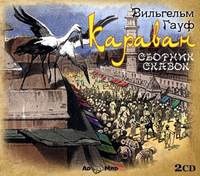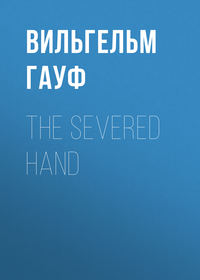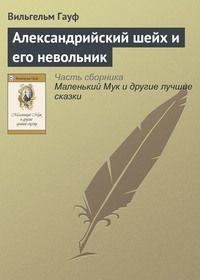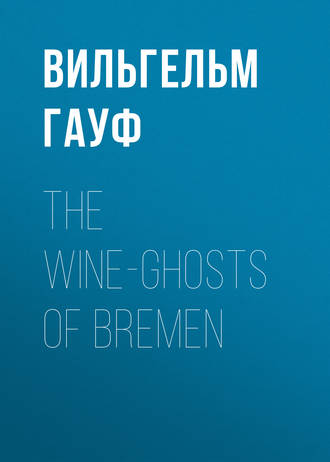 полная версия
полная версияThe Wine-ghosts of Bremen
'How do you like the liquor?' said Bacchus; 'it must be dry work up there on your pillar. I suppose you haven't tasted wine for years?'
'It is good, by my sword, very good. What growth is it?'
'Red Ingelheimer, noble sir,' said Balthasar.
The stony eyes of the knight took fire and sparkled as he heard this, a soft smile beautified his stern features, and he looked with affection into the goblet.
'Ah, dear beloved Ingelheim! how sweet it sounds! the noble castle of my knightly Kaiser. So, even in these days thy name is named! and the vines still bloom which Karl first planted by his Ingelheim! Do the men who live now ever speak of Roland? or of his great master?'
'That you must ask of the mortal here,' said Jude; 'he calls himself Doctor and Master of Arts, and he must give you an account of his race.' The giant turned his eyes inquiringly on me, and I said, 'Noble Paladin, mankind has indeed grown bad and careless of all that is great and lofty: its blind gaze is fixed upon the present, and looks neither before nor after. Yet so wretched are we not yet become, as to have wholly ceased to remember the glorious figures that once trod our native land; they still cast their shadow through the ages till it touches even us. Still are there hearts that fly for refuge to the memories of the past, when the present has become too stale and mean for reflection. Still are there pulses which beat higher at the naming of mighty names, still men who wander with reverence through the ruins where sat the first German Kaiser on his throne with his Paladins and his bards around him. Karl and Oliver, Eginhard and the lovely Emma are still familiar in men's mouths. And where Karl is renowned there too is Roland unforgotten. Next to him thou stoodst in life, and next to him thou wilt stand in song and saga and history till Memory itself shall be no more. The final blast of thy warhorn still echoes in the hills of Roncesvalles, and will echo and echo on till it fades into the blare of the Latest Trumpet.' 'Not in vain, my Kaiser, not in vain have we lived! There is a posterity which does honour to our name,' cried the knight. 'True,' cried Frau Rosa, 'these men would deserve to drink the water of the Rhine instead of the vine blossom of its hills if they could forget the name of the man who first planted us in the Rheingau. My dear friends and apostles, up! a health to our glorious founder and ancestor! to Kaiser Karl, to Kaiser Karl!' The glasses rang again; but Bacchus said, 'Yes, it was a beautiful and a glorious time, and I rejoice in it as I did a thousand years ago. Where now there is one long wonderful garden from the shore of the stream to the tops of the hills, where grape climbs after grape up and down the terraces, there was nothing but wild dark forest before he came. Then he looked down from the mountains from his castle at Ingelheim, and he saw how even in March the sun greeted the hills so warmly as the snow slid down them into the stream; saw how early the trees became leafy there, and how tender and fresh the young grass looked as it burst upwards from the earth in the spring. And then there awakened in him the thought of planting vines where the wood grew. And a busy life began to move in the Rheingau beside Ingelheim; the wood vanished, and the earth was cleared to receive the vine. Then Karl sent men to Hungary and Spain, to Italy and Burgundy, to Champagne and Lothringen, and had vines brought from thence, and entrusted the cuttings to dear mother earth. And my heart rejoiced that he should extend my kingdom beside the noble stream of Germany, and when the first shoots blossomed there I came with all my train, and we camped upon the hills, and we worked in the earth, and we worked in the air, and we spread out delicate nets and caught the dews of spring lest they should fall too heavily; and we rose up and caught the rays of the sunshine, and poured them round the little swelling clusters, and we dived down and brought up water from the green Rhine for the roots, and water for the leaves. And when in autumn the first tender child of the Rheingau lay in its cradle we kept a great feast, and invited all the elements to celebrate it; and each came with some costly gift for the child. Fire laid his hand upon its eyes and said, "Thou shalt bear my sign upon thee for ever–there shall be fire in thee, albeit of such purity and transparency, that thou shalt impart noble courage beyond all other juice of the grape." And Air came in her golden garment of gossamer, and laid her hand upon the child's forehead and blessed him. "Be thy colour as bright and delicate as the golden edge of morning light upon the hills, as the golden tresses of the fair women of the Rheingau." And Water ran past him, all rustling with silver, and bent towards the child, saying, "I will be ever near thy roots, that thou mayst bloom and be green and cover the banks of the Rhine." But when Earth came she kissed his mouth tenderly, and blew with her sweet breath upon him. "The perfumes of all my most delicate herbs, the honey of all my fairest flowers," she said, "have I collected as an offering for thee. The most precious spikenard or ambergris shall be coarse beside thy scent; and thy fairest daughter shall be named after the Queen of Flowers–the ROSE!" Thus spake the elements, and we rejoiced at their promised blessings, and we adorned the child with vine leaves, and sent him to the Kaiser in his castle at Ingelheim. And the Kaiser marvelled at the beauty of the child, and from that day he esteemed the vines of the Rhine among the most splendid of his treasures.'
We sat silent for a while when Bacchus had finished, until her Ladyship requested Andrew to favour us with an old melody, which he did with great ease and grace, by singing a simple old song of the fourteenth or fifteenth century. The words have escaped my memory, but the tune I remember still. This set us all off, even Frau Rosa herself, who sang a pretty little air of 1615 with a rather trembling voice, and Roland also growled out in deep bass a Frankish war hymn, of which I could distinguish little. I was obliged to bear my part, so I began bravely,
The Rhine! the Rhine! the garden of the vine!Heaven bless the noble Rhine!Along his bank the clustered grapes entwine,And patriot hearts inspire to guard the Rhine!When they heard the words they pressed nearer, and nodded to one another, and stretched out their necks as if wishful not to lose a word. I sang louder and louder for their encouragement. It was inspiration enough to be heard by such a company. The old Rose kept time with her head, and gently hummed the chorus, and the Apostles gazed at me with surprise and joy in their eyes. When I had finished, all were loud in praise of the poor Doctor of Philosophy. 'What a song!' cried Bacchus himself, 'how my heart opens to it, dear Doctor, was it composed in that head of yours that's crowned with academic honours?' 'No, indeed, your honour, the composer has long been dead; he was called Matthew Claudius.' 'He knew a good glass of wine when he came across it, I'll go bail,' said another. 'I don't know, sir,' said I, 'though I have no doubt of it; but another great mortal has said,
Good wine is a good familiar creature, if it be well used,and I think old Claudius had a similar idea, or he would never have written such a beautiful song, which all men still sing as they sit beneath the vine-covered arbours of the Rhine.' 'Well, Doctor,' said Bacchus, 'if they still sing songs like that they can't be quite such a miserable lot of fellows as you made out.'
'Ah, sir,' said I, 'your poetical "high soul" won't sin by allowing such a song to be poetry at all, just as your pietist finds the Lord's Prayer too simple and straightforward for him.' 'There have been fools in every age, sir,' said another, 'and every one is bound to clean the pavement opposite his own door only; but as we are upon the subject of the present times, tell us what has happened this year on the earth.'
'If I thought it would interest the ladies and gentlemen–' 'Go on,' cried Roland, 'and as far as I am concerned you may begin 500 years back, for I see nothing from my pedestal but cigar-makers, vintners, priests, and old women, and they don't make history, or didn't in my days.'
'First of all then, concerning German Literature …'
'Stop for Heaven's sake, man! Do you think we are going to listen to trash like that?' cried Peter. 'Poetasters and public-house squabbles!'
I was startled. If these people were not interested by our magnificent literature, if Goethe had no charms for them, what was the use of speaking to them at all?
I tried again. 'It was only last autumn that the stage was–' Howls of laughter drowned my voice. 'We want facts, man, history and facts only; do you suppose we care who spins your comedies and who hisses them?'
'Ah, sir,' I replied, 'you're sadly out of fashion. So's History. We have in fact only the Diet at Frankfurt. Among our neighbours it's true there's occasionally something–for instance, the Jesuits are up again in France, and it looks uncommonly as if the Jacobins were up in Russia.' 'Stuff!' cried one, 'you mean vice versâ.' 'No, I don't.' 'Well, that's odd.' 'And is there no war?' 'Just a little firespitting going on in Greece against the Turks.' 'Ha!' cried the Paladin, smashing a few planks of the table with his stone fist, 'that is good! By my sword, that is good! I have been angry for centuries at the tameness of Christendom while Greece is in chains. You live, sir, in a fine time, and your race is nobler than I thought. I retract my previous vituperation. So the knights of France and Germany, of Spain and England have set out again as erst under Richard of the Lion-heart, to fight the infidel? The fleets of Genoa cover the Mediterranean? the Oriflamme is raised on high within sight of the towers of Stamboul, and the banner of Austria floats over the foremost ranks. Ha! in such a case I would fain bestride once more my steed; I would make Durendal, my good sword, flash the lightnings of death indeed, and would rouse with one blast of my horn every hero who sleeps within the bounds of Europe!'
'Noble knight,' I answered–and again I blushed for the age in which I lived–'times are changed. You would probably be imprisoned as a Jacobin demagogue under the present circumstances, for neither the banner of Hapsburg nor the Oriflamme, neither the Leopard of England nor the Lion of Spain are to the fore in the present conflict.'
'Who then is fighting against the Crescent, if not these?'
'Simply the Greeks themselves.'
'The Greeks?' cried another, 'is it possible? and what are the other powers about?' 'They have their ambassadors with the Porte.' 'Man, man,' said Roland, stiffer than ever with amazement, 'what are you saying? a Christian state fighting for its freedom and left to do it alone? Holy Virgin, what a world is this!' and he crushed the silver goblet as if it had been cardboard, so that the wine in it splashed up to the ceiling; then rising from the table took his sword and targe, and passed with clanking strides out of the chamber.
'Why, what a hot-headed fellow he is!' said the Rose, shaking her kerchief, which was splashed with his wine. 'Does the stony fool want to go a-campaigning again in his old age? If he were to show himself they would certainly make him a right-hand man in a company of Prussian Grenadiers, for he's tall enough.'
'Do not be hard on him, my Lady Rose,' said one of the company, 'for he has the right stuff in him, and he showed it on many a stricken field. If his Kaiser had wished it he would have fought a thousand Mussulmans single-handed.'
'Let him go,' said Bacchus; 'I'm glad he's gone; he bored me with his strong heroics: a fellow ten feet high is out of place here. He showed me no respect. We should never have been able to dance while he was here; his legs would have broken if he had tried.' 'To the dance! to the dance!' they all cried. The wine god beckoned to me. 'Do you understand music, Doctor?' 'A little.' 'Keep good time?' 'Oh yes, I keep good time.' 'Then take this little barrel and this cooper's stave, and sit down besides the Bottomless one there; he is our cellarmaster and cornet player, and you shall accompany him on the drum.' I did as I was bid, but if my drumming was rather unusual, Balthasar's cornet-playing was even more so. He held the iron spout of a large empty cask to his mouth like a clarionet. Two more sat near me with huge wine-funnels which they used as trumpets, waiting for the signal. Then began a fearful rumbling and hooting, all out of tune, to which Turkish music was nothing. Balthasar's instrument had but two notes, the key note and an horribly high falsetto. As for the trumpeters the sounds of grief and anguish which they drew from their funnels was like nothing but the wailing of a Triton on a conch.
Bacchus and his sweetheart paraded in the height of the fashion of 200 years ago. Frau Rosa held her skirt wide out with both hands, so that she looked more like a great wine cask than ever. She didn't move far from her place, but tripped a few steps up and down and back again, and kept bobbing with little curtsies. Her partner meanwhile spun round her like a top, snapping his fingers and crying Halloo!
When at last he seemed tired he beckoned to two of the others, and whispered something to them, whereon they took off Mistress Rose's apron, (which Bacchus had tied round his own neck when he began to dance.) Then the others stood all round and grasped the edge of it. Ha! thought I, now old Balthasar is going to be tossed in a blanket. I hope he won't break his head against the low roof. Then to my horror two of the biggest of them came forward and seized–me; Balthasar chuckled. Struggling was vain; they laid me on the sheet shouting with laughter. 'Only not too high, my noble patrons, or I shall break my head; remember it's not like your saintships' heads,' I cried. Up and down I went, first three, four, then five feet high. Suddenly they began to pull harder, and I flew up–up–and like a cloud the roof opened, and I flew up beyond the roof of the Council Hall, beyond even the Cathedral tower. 'Ah!' thought I, 'now it's all over with me, I shall infallibly be spiked on the weather-cock in coming down, or at least break a few arms or legs; and I know what Adelgunde thinks of a man with broken limbs. Adieu! my love! my life! Then I began to descend as swiftly through the air, through the Council Hall, through the vault, but I lighted not upon the cloth, but just upon a chair which toppled over backwards with me to the floor.
Stunned by the awful fall I lay long, but at length a headache and the coldness of the ground awoke me. Anxiously I examined my limbs, but found nothing broken. Daylight was faintly streaming in through a cellar grating; on the table a candle was flickering as it expired, and round the table in front of each chair a long-shaped bottle with a label on its neck. The company was gone! But whither and how?
Thoughtfully I walked round the long table. The sample bottles stood where each one had sat. Frau Rosa's at the head of the board. Surely it couldn't have been a dream? No, one does not dream so vividly–besides, my headache from that bump! But I had little time left for reflections. I heard keys rattling at the door–it opened slowly, and my old friend of the evening before came in wishing me good morning. 'It has just struck six, sir,' said he, 'and I have come as you desired to let you out. Well, how did you sleep?' 'As well as one can upon a chair–pretty fairly, thank you.' 'Sir,' cried he, anxiously examining me, 'something strange happened to you last night–you look disturbed and pale, and your voice trembles.' 'Nonsense,' said I, 'what could have happened to me? I am only sleepy.' 'I am not so blind as you think,' said he, 'and, besides, the night watchman came to me early this morning and told me that as he passed by the cellar between twelve and one last night he heard all kinds of riot and revelry within there.' 'Pure imagination,' said I, 'I'm given to talking loud, and even to singing, in my sleep sometimes.'
'Never again,' said he, 'do I leave a gentleman alone in the cellar at night. The Lord knows what awful things he has not heard and seen. I wish you a most respectful good morning, sir.'
'But the thing that best would win itIs the Lady Fair within it.'Remembering these words of the joyous Bacchus as being particularly applied to Bremen and to my own case, I hurried, after I had slept a few hours, to bid good morning to the lovely Adelgunde. But she received me with more than wonted coldness, and when I whispered some affectionate words to her she fairly laughed aloud, and turning her back said, 'Go, and have your sleep well out, sir, first.' A friend, who was sitting at the piano in another corner of the room, followed me as I turned away, and taking my hand said, 'Dear Brother, it is all over with your love for her–put all thoughts of it out of your head.' 'I could see as much,' I answered; and then, sotto voce, 'The Devil take every pretty pair of eyes and every rosy mouth in the world!' 'But tell me,' says my friend, 'is it true that you stayed the whole night drinking in the wine cellar?' 'Well, yes! but whose business is that?' 'Heaven knows how she heard it, for she has been crying all the morning, and vows you are a mere vulgar sot, and she will have no more to do with you.' 'Well,' said I, steeling myself, 'good then; that proves she can never have loved me. Give her my kind regards; farewell.'
I ran home quickly and resolved to quit Bremen at once. As I left the market-place that evening I gave old Roland's statue a friendly wave of the hand, and to the horror of my postillion, he nodded a parting greeting at me with his stone head. I threw a kiss to the old Council Hall and its happy cellars, and curling up in the comer of my chaise allowed the fancies of the night to pass once more before my eyes.
1
Schalttag, lit. 'intercalary day'–used of the 29th of February in leap years–impossible to translate except by a circumbendibus. Hence we have borrowed from ecclesiastical phraseology a word which, to a certain extent, possesses the same meaning in English. So far as we are aware Hauff is peculiar in using Schalttag in this sense.


